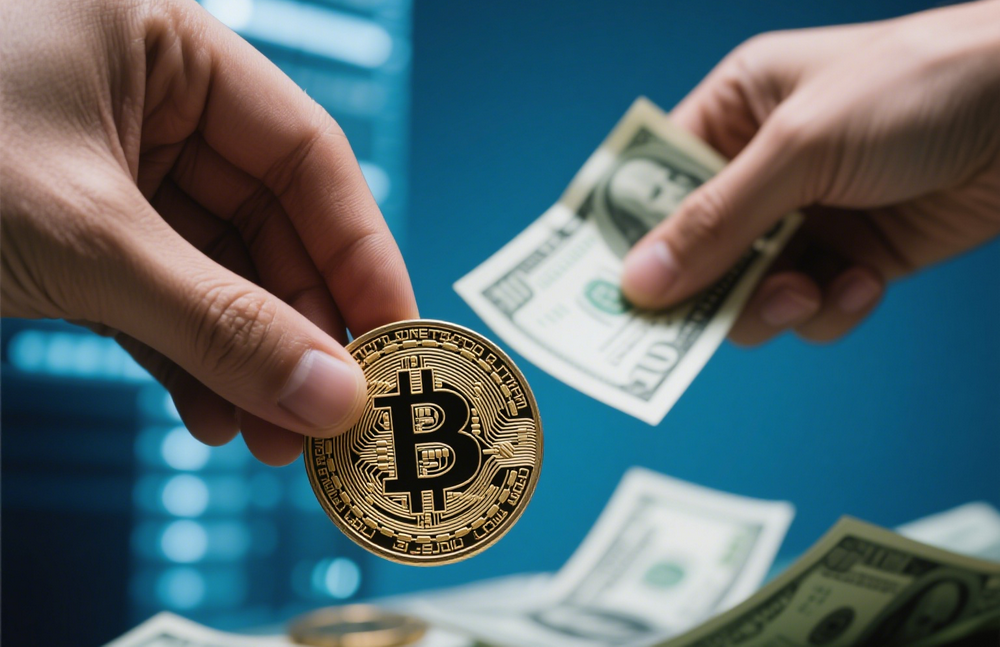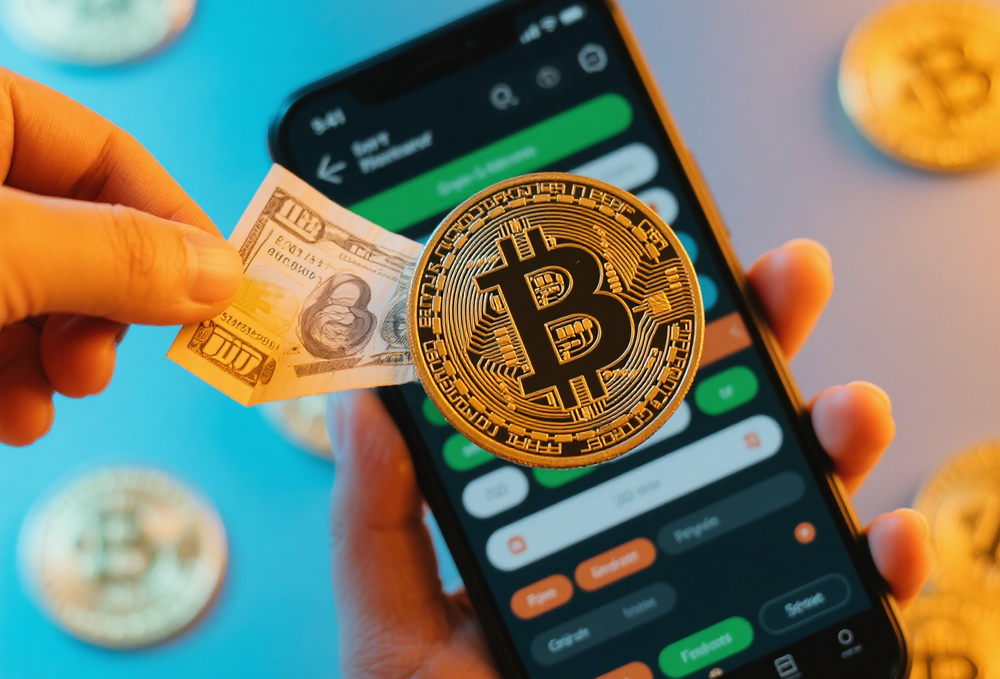Money laundering cases have begun to show some new characteristics in the era of "booming" cybercrime. Since the Supreme People's Court and the Supreme People's Procuratorate issued the "Interpretation of the Supreme People's Court and the Supreme People's Procuratorate on Several Issues Concerning the Application of Laws in Handling Criminal Cases of Money Laundering" on August 20, 2024 (hereinafter referred to as the "Judicial Interpretation of Money Laundering Cases"), judicial organs have conducted more in-depth research and crackdowns on money laundering crimes, and self-money laundering crimes have begun to be identified and cracked down on in large numbers. In addition, because virtual currencies are widely used in money laundering crimes, but because of the particularity and novelty of virtual currency transactions, in practice, judicial organs have no unified standards for the identification of self-laundering using virtual currencies, and even relatively chaotic. Therefore, it is of great significance to study the role of virtual currencies in money laundering and self-laundering crimes, and lawyers' defense. (This article is originally written by Lawyer Liu Zhengyao: web3_lawyer)
1. What is self-laundering?
Generally, self-laundering can be understood as the act of an upstream criminal (Article 191 of the Criminal Law of the People's Republic of my country stipulates 7 types of upstream crimes) using various means to conceal and hide the source and nature of the illegal gains obtained from criminal activities to make it legal in form. The Criminal Law Amendment (XI) implemented in 2021 made important revisions to the crime of money laundering, and the aforementioned Judicial Interpretation of Money Laundering Cases clearly included the act of "self-laundering" in the scope of the crime of money laundering.
Compared with traditional money laundering, self-laundering has significant characteristics. First, the subject of the behavior is identical, that is, the recipient of the proceeds of crime and the perpetrator of the money laundering are the same subject; second, the purpose of the behavior is direct, mainly to legalize the proceeds of crime that have been obtained; third, the behavior is more covert, and criminals usually use their knowledge of the proceeds of crime to design more complex money laundering routes. These characteristics of self-laundering make it face greater challenges in investigation and evidence collection.
From the perspective of legal elements, self-laundering must meet the following elements: first, the existence of upstream crimes (a total of 7 types of upstream crimes), that is, there must be criminal behavior that can generate criminal proceeds; second, the perpetrator has concealed and concealed the source and nature of the proceeds of crime and its proceeds; third, the perpetrator has the subjective intention to legalize the illegal proceeds. It is worth noting that the relationship between self-laundering and upstream crimes is controversial in criminal law theory. Some people believe that multiple crimes should be punished together, while others believe that the most serious crime should be punished, which provides room for criminal defense.
From the perspective of regulators, the social harm of self-laundering cannot be ignored. It not only undermines the financial management order and encourages criminal activities, but also provides financial support for the continued operation of criminal organizations. With the development of economic globalization and the advancement of financial technology, the means of self-laundering are becoming increasingly complex and international, bringing new challenges to the anti-money laundering work of various countries.

II. The role of virtual currency in self-laundering cases
Virtual currencies, especially cryptocurrencies represented by Bitcoin and Tether, have gradually become new tools for money laundering due to their decentralization, anonymity, and global circulation. Although Tether is not decentralized, it is currently the most widely used and circulated virtual currency based on its 1:1 anchoring with the US dollar. Virtual currencies do not need to be traded through traditional financial institutions. Users can quickly transfer assets around the world through digital wallets. Although transaction records are public, it is difficult to directly match account identities, which makes it easier for criminals to conceal the flow of funds.
In the process of self-laundering, virtual currency mainly plays the following roles: First, as a medium for fund transfer, criminals can exchange illegal proceeds for virtual currency and blur the track of funds through multiple transfers or currency mixing services; second, as a means of storing value, the price of virtual currency fluctuates greatly but is easy to carry and hide, making it convenient for criminals to save illegal proceeds; third, as a cross-border payment tool, virtual currency can bypass traditional foreign exchange controls and bank supervision to realize the international flow of funds.
Specifically, typical methods of virtual currency self-laundering include "chain hopping" (quickly transferring funds through multiple wallet addresses), "coin mixing" (using specialized services to mix virtual currencies from different sources to conceal the source of funds), "coin-to-coin exchange" (frequent conversion between different cryptocurrencies) and "legal currency exchange" (exchanging virtual currencies for legal currencies through unregulated exchanges or over-the-counter transactions). These methods are combined to form a complex money laundering path, which greatly increases the difficulty of tracking by law enforcement agencies.
From a technical perspective, virtual currency self-laundering activities mainly utilize some characteristics of blockchain technology. Although all transactions on the blockchain are open and transparent, the correspondence between wallet addresses and real identities is unclear unless KYC (know your customer) certification is performed through intermediaries such as exchanges. In addition, the emergence of privacy coins such as Monero and Dash has further enhanced the anonymity of transactions, making the flow of funds more difficult to track.
Virtual currency self-laundering cases are common in judicial practice. For example, in a certain online gambling case, criminals collected gambling funds through Bitcoin, Tether, and Ethereum, and then used multiple transfers and currency mixing services to launder funds, and finally withdrew them through overseas exchanges; in a certain telecommunications fraud case, the criminal gang asked the victim to transfer money directly to the virtual currency wallet designated by them, and then quickly dispersed the funds to multiple addresses. These cases show that virtual currency has become an important tool for self-laundering crimes.
III. Key points for lawyers’ defense in virtual currency self-laundering cases
In virtual currency self-laundering cases, criminal defense attorneys need to construct defense strategies from multiple angles.
First, the primary defense point is the identification of subjective intent. The elements of the crime of money laundering require that the perpetrator must be aware that the proceeds of crime and the proceeds generated by it, and deliberately conceal their source and nature. In the virtual currency environment, lawyers can examine whether the client is aware of the illegality of the source of funds, or whether there is a reasonable misunderstanding of the nature of virtual currency transactions. Especially in some emerging blockchain financial activities, participants may indeed find it difficult to discern the legal boundaries of certain operations.
Second, the identification of upstream crimes is also an important defense direction. According to the provisions of my country's criminal law, the crime of money laundering must be based on the existence of upstream crimes. Lawyers should examine whether the facts of the upstream crime are established, whether a judgment has been made, and the relevance of the funds involved in the case to the upstream crime. In virtual currency cases, due to the complex flow of funds, it may be difficult to verify the upstream crime or the funds involved in the case may have a weak relevance to the upstream crime, which can be a strong defense reason.
Third, the dispute over the value of virtual currency provides room for defense. Due to the sharp fluctuations in the price of virtual currency, the value difference at different time points may be very large, and the sentencing of money laundering is directly related to the amount involved. Lawyers can review the calculation method of the value of virtual currency by the judicial authorities and advocate the use of a time point that is favorable to the parties for valuation. In addition, the loss of virtual currency during the transfer process, handling fees, etc. should also be deducted from the amount involved.
Fourth, technical defense is equally important. Lawyers can hire blockchain technology experts as expert assistants to analyze the integrity and accuracy of the flow of virtual currencies involved in the case and challenge the prosecution's presumption of the capital chain. For example, some seemingly related wallet addresses may not actually have a control relationship, or the so-called "coin mixing" operation may be just an ordinary transaction behavior. Technical analysis can dismantle the capital flow diagram constructed by the prosecution.
Fifth, the defense of procedural legality cannot be ignored. The investigation of virtual currency cases often involves new technical means. Lawyers should review the legality of the evidence collection process of the investigative agency, including whether the extraction, preservation, and identification of electronic data comply with legal provisions. Especially in the case of cross-border evidence collection, more attention should be paid to the compliance of international judicial assistance procedures. Any procedural violation may become a reason to exclude key evidence.
Finally, lawyers can also defend from the perspective of crime form. In self-laundering cases, there is a theoretical dispute on how to characterize the relationship between the upstream crime and the money laundering behavior. Lawyers can advocate the theory of "non-punishability after the fact" (no expectation possibility), that is, money laundering behavior is a natural continuation of the upstream crime and should not be convicted separately. Even if this claim is not fully adopted, it may affect the final sentencing result.

4. Final Thoughts
The rise of virtual currencies has provided new tools and channels for self-laundering crimes, bringing unprecedented challenges to anti-money laundering work. Due to its technical characteristics, virtual currencies play multiple roles in the process of self-laundering, from a medium for transferring funds to a means of storing value, to a cross-border payment tool. Its anonymity and decentralization are fully exploited by criminals. Faced with this situation, judicial organs need to continuously improve their technical investigation capabilities, improve relevant laws and regulations, and strengthen international cooperation in order to effectively combat self-laundering crimes in the field of virtual currencies.
For criminal defense lawyers, virtual currency self-laundering cases are both challenging and full of opportunities. Such cases involve multidisciplinary knowledge such as finance, law, and technology, requiring defense lawyers to not only be proficient in criminal law theory, but also understand the principles of blockchain technology and the characteristics of virtual currency transactions. Through multi-dimensional defense strategies such as subjective intent, upstream criminal association, value identification, and technical analysis, lawyers can fight for the legitimate rights and interests of their clients on the premise of respecting facts and laws. Especially in the emerging blockchain financial field, the legal boundaries of many behaviors are still unclear, which provides space for reasonable defense.
Looking ahead, with the advancement of regulatory technology and the improvement of laws and regulations, money laundering activities in the field of virtual currencies will be subject to stricter constraints. But at the same time, criminals may also adopt more innovative money laundering methods. This requires legal practitioners to continue to pay attention to technological development and judicial practice dynamics, and constantly update their knowledge reserves, so as to maintain a balance between combating crime and protecting human rights, and contribute to maintaining financial order and social fairness and justice.











